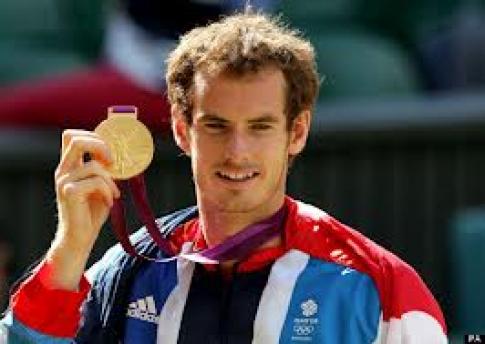Andy Murray's US Open win: a fairytale in New York

Scot overcomes Novak Djokovic in five sets to become first British male to win a grand slam since 1936.
Kevin Mitchell, The Guardian
This fairytale of New York written by Andy Murray was more than just an achievement to savour for itself. Few sporting voyages have carried such baggage, and Murray's alone has resembled a flea carrying a piano up a mountain. In a single win, wind ruffling his Scottish locks, Murray put a deal of pain to rest.
It is unlikely he will ever win any of these big matches easily and Monday's for the US Open and his first slam title was straight from the Murray blueprint of struggle. Yet there was an underlying conviction, even in some of his mistakes. There was cool to go with the heat. When he went two sets up, he knew he had to just hold his nerve and the prize was his.
There have been few doubts about his talent, some about his temperament, hardly any about his commitment. But everyone's got a take on Murray; the most pertinent and relevant belong those closest to him, of course, nobody so ever-present in that regard than his mother, Judy.
A decent player herself, she has accompanied him on this journey since he first swung a racket with his bony arm as a 10-year-old around the halls and cold council courts of Scotland. She was here, naturally, as emotional as when he made her cry at Wimbledon after losing to Roger Federer – then beating the great Swiss a month later at the Olympics. She had Sir Alex Ferguson for company in Andy's box, after he turned up an hour late; a little further away, Sir Sean Connery, her other New York drinking partner this weekend, bristled silently. The clans had gathered.
Those Wimbledon matches were seen as defining contests in Murray's often turbulent career. It turned out they were. They coincided with the growing confidence the player has in his coach Ivan Lendl, a court-side fixture these past nine months whose mien might frighten the ball-kids but encourages the Scot to reach for his full potential as he sheds, almost by the week, some of that psychic collateral.
The sulking has all but gone. The forehand now flows with muscled freedom.
His second serve is improving, to go with the potency of the first. And, crucially, Murray's reluctance to attack, borne of his noted ability to defend, has been recalculated.
He remains a some times enigmatic individual, but so what? He will forever have the the tics and the squirms of memory-built repetition. And he will go again in quiet moments to sit alone in an empty Wimbledon, as he did many times this summer before cracking the secrets of that cathedral for a gold medal.
Murray might not get lost on the Paris Metro again, but he will surely walk the streets of Manhattan by himself, tweet when he is happy, but not when he's not, and he can cry if he wants to.
Mark Petchey, his first coach when he went on the Tour, said during the media agonising a year ago over who should guide the player's career after another minor upheaval in his team: "Everyone sees Andy on the court and they see this volatile, stroppy kid but I can assure you, you can't get more of a 360 away from the court. As much as the toughness is there and it seems to be there on the court, away from it things affect him much more than people realise.
"This spotlight on him is difficult to deal with because he's the only one who is actually doing something in British tennis and yet here we are, having this major discussion about what is wrong with Andy. Hang on a minute – there's a whole lot wrong with what's behind him."
And, of course, Murray picked Lendl. They started working together just before the Australian Open. Murray reached the semi-finals, where he gave Djokovic four hours and 50 minutes of hell. He could have won, but he didn't. Critics who don't understand tennis jumped on him. The fact is, that match could have gone either way. It was without a doubt one of the best performances of Murray's career, better than a lot of his wins.
Lendl was proud but did not show it. He looks hard, and he is hard. It is one of the reasons Murray employs him, although the genesis of their contact has never been made clear. It suits both of them to leave it vague, although I suspect it was Lendl who made the first approach.
It hardly matters. There have been few partnerships in tennis that have clicked so pleasingly in such a short space of time.
Lendl has settled Murray's mind. When he arrived, older hacks remembered him from his playing days, and he remembered them. An initial wariness gave way to calculated warmth, and some wariness.
There is something that binds him to Murray: defeat – each lost their first four slam finals.
Lendl does not talk much – to the media or, as it happens, at length to Murray, but they did celebrate his Olympic gold. He told him he won because he'd lost.
"I said to him, 'A loss is a loss; and a loss is not a loss. You learn from certain losses and become depressed from other ones. When you have losses, when you put it all out there and go hard, you can be proud of yourself.
And you can learn from it, and that is really important.'"
It might have been the best talking to anyone has ever given him./ Guardian




 del.icio.us
del.icio.us Digg
Digg

Post your comment